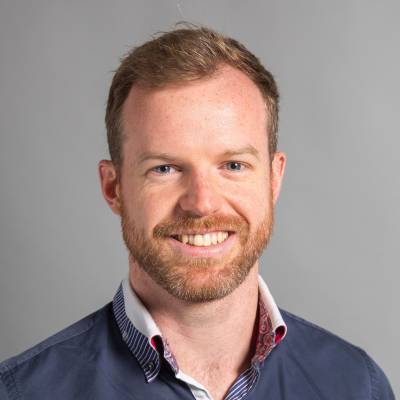Spotlight on Michael Woodrow - Lecturer in Engineering Education, UCL CEGE (Civil, Environmental & Geomatic Engineering)

I’m a Lecturer in Engineering Education and Director of the Engineering for International Development MSc programme. My role is to develop, challenge and support integrated design thinking in engineering programmes at UCL; putting people at the centre of the design process.
How long have you been at UCL and what was your previous role?
I joined UCL in September 2019. For the previous six years, I was an Associate at Foster+Partners architecture practice in London, where I founded and managed the Fire Engineering team. My role was to design fundamentally fire safe buildings in collaboration with an integrated design team of architects and engineers.
Tell us about something you’re working on at UCL that is supporting the SDGs
Statistics during the pandemic showed a disproportionately high death rate within the Black, Asian and Minority Ethnic (BAME) community. I was part of a research team, led by a talented UCL MSc student, who identified underlying social reasons for vaccine hesitancy among the BAME community. The results of the study – set to be published in a journal – can and should be used to improve public health policy; and ultimately reduce health inequality between ethnic groups in the UK. It will contribute to two Goals: SDG3 (Good Health and Well-being) and SDG10 (Reducing Inequalities).
Beyond work, which of your everyday activities contributes most to one or more of the SDGs?
A few years ago, I stopped buying meat from the supermarket. Instead, I buy meat from my local butcher, where it not only tastes much better, but it costs less because it’s from local farms. It might seem like a small change, but it has turned me into a ‘meat snob’ and my overall meat consumption has declined significantly. Shifting to a plant-based diet is one of the things we can control in our everyday lives that will have a significant impact on climate change.
And what do you do that has the most detrimental impact on the Goals?
Flying. Throughout my life, I have lived in eight different countries on five different continents and have travelled for business and leisure all over the world. Flying is such a huge carbon emitter that it is impossible to justify as sustainable.
In your opinion, which of the SDGs is the most important for humanity to address?
Goal 13 – Climate Action. Even with the current threat of nuclear war in Eastern Europe, it is difficult to imagine a more existential threat to humanity than global climate change.
If there was an 18th Goal, what should it be?
Space. The past decade has seen incredible innovation in space travel; including commercial space tourism, a Martian helicopter, the most powerful telescope ever built, and tens of thousands of new satellites providing internet connectivity to billions of people. But this unbridled development has resulted in tonnes of space debris that could jeopardise future space travel. We need to develop a more sustainable approach to colonising space.
If you could bring in one law or societal shift to help the UK address the SDGs, what would it be?
I would create a societal shift away from viewing ‘sustainability’ as a standalone entity. To end the pervasive, non-sensical attitude of designing unsustainable products and services and then trying to figure out how to ‘make them sustainable’. Instead, through a system of effective education, I would shift our thinking to consider sustainability in every decision we make – the products we buy, the food we eat, the services we use, etc.
What is the biggest challenge to the world achieving the Goals by 2030?
Gross Domestic Product (GDP). We measure ‘success’ in our society by the volume of money each of us can produce. We live in a society where Amazon (the company) is worth over a trillion dollars; but Amazon (the rainforest) is worth nothing. If we continue to focus on turning the riches of our natural world into digital and paper currency, we will never achieve sustainability. As a society we must ask ourselves the question, how should we define ‘success’?
What would it surprise people to know about you?
I’m dyslexic. During school and university, it was a hindrance; as it meant I had to work harder than my peers to achieve the same (or lower) grades. But throughout my career, it has been my greatest asset; allowing me to see the ‘big picture’ and synthesise seemingly disconnected ideas faster than anyone else around me. I am now helping to design an MEng programme at UCL that supports students across the entire spectrum of neurodiversity.
 Close
Close

